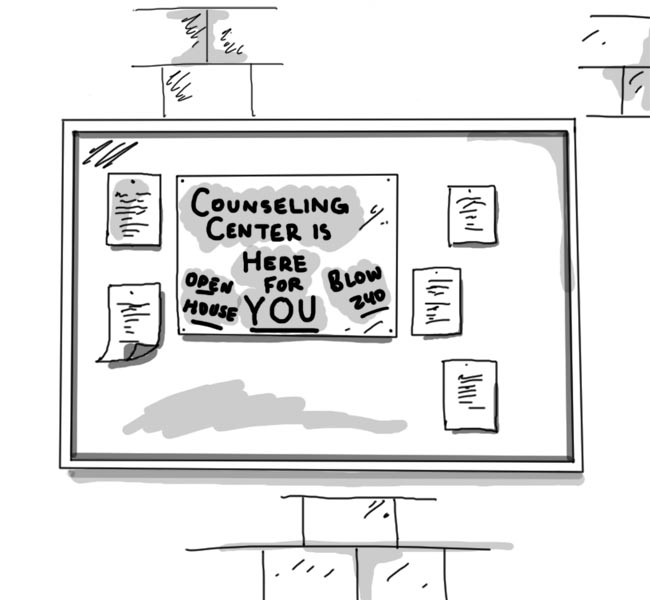The counseling center offers quality service to hundreds of students at the College of William and Mary. As the largest on-campus resource for mental health, it has helped countless students suffering from depression, anxiety and other mental health issues. However, the counseling center lacks a distinct and visible presence on campus — one that would eradicate the stigma surrounding it. Furthermore, the counseling center could streamline the process by which students make appointments, encouraging more students to seek help.
The First Year Experience needs to make the counseling center more visible to freshmen. Orientation Aides should visit the counseling center with their students and build a lasting familiarity.
The counseling center should be more than visible during Orientation — it must be conspicuous. It should vie for students’ attention during the student activities fair, perhaps hold an open house in the Sadler Center with food and guest speakers. Counselors should meet with OAs and their students periodically, and wear identifiable clothing.
But a strong presence during Orientation is not enough: the counseling center must maintain that presence. They should recruit student volunteers and table at the Sadler Center regularly, providing students with critical mental health information and approachable faces. Perhaps counselors could hold office hours in residence halls. Students and counselors could then speak casually and build relationships which would gradually dissolve the counseling center’s stigma.
However, the stigma might not be the only element dissuading students from visiting the counseling center. Currently, students can only make appointments at the counseling center over the phone or in person — and making a phone call is harder than sending an email. To accommodate students who desperately need help, but who are hesitant to take that often-terrifying first step, the counseling center should allow students to make appointments via online form or email. The counseling center could even call students after they have submitted a form or email, removing the pressure that accompanies making the call themselves.
But the College has made strides in providing atypical counseling opportunities for students, including Donna Haygood-Jackson, the senior assistant dean of students and the head of care support services. Haygood-Jackson’s position is one of the few places on campus where students can speak to administrators in perfect confidence. Haygood-Jackson directs students to resources that fit their needs, including the counseling center, off-campus therapy and even the police in cases of physical and sexual assault. It is this added variety of counseling opportunities that make Haygood-Jackson’s position extremely beneficial to students on campus.
In order for mental health to remain a priority at the College, the counseling center cannot simply exist; students need to see it as an integral part of the College community — staffed by people who are engaged in that community.





































Hark! Great editorial. The Counseling Center is an important resource which could be better exposed and accessed via technology. Excellent suggestions here for a hardworking staff for whom time will be precious to man the events. Technology is slowing coming online to comply with privacy laws covering counseling. Ironically, it is easier to access your bank balance and text money to another account than it is to make an appointment with a therapist.